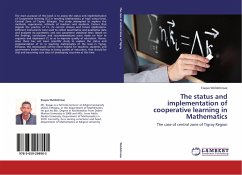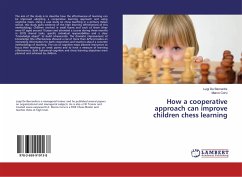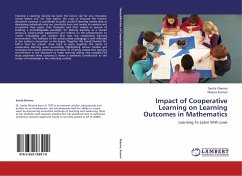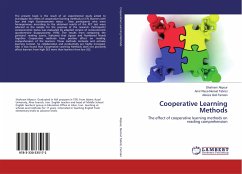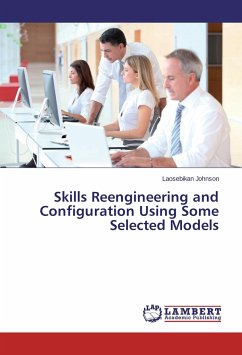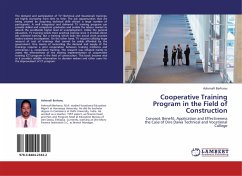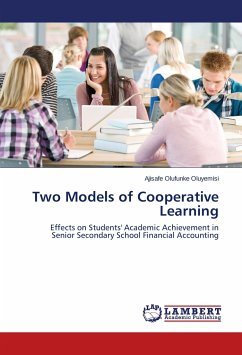
Two Models of Cooperative Learning
Effects on Students' Academic Achievement in Senior Secondary School Financial Accounting
Versandkostenfrei!
Versandfertig in 6-10 Tagen
19,99 €
inkl. MwSt.

PAYBACK Punkte
10 °P sammeln!
Cooperative learning encourages interactive learning wherein teachers and students construct new knowledge through social interactions in a context that enhances creativity and a free exchange of ideas. Cooperative work rarely replaces teacher instruction but, rather, replaces individual lectures and drill work. An important rationale of cooperative learning is allowing students to develop their latent skills and knowledge to the greatest extent possible. The safety of the group allows the quiet student to gain self-confidence to put forward ideas in a secure environment. Cooperative learning ...
Cooperative learning encourages interactive learning wherein teachers and students construct new knowledge through social interactions in a context that enhances creativity and a free exchange of ideas. Cooperative work rarely replaces teacher instruction but, rather, replaces individual lectures and drill work. An important rationale of cooperative learning is allowing students to develop their latent skills and knowledge to the greatest extent possible. The safety of the group allows the quiet student to gain self-confidence to put forward ideas in a secure environment. Cooperative learning not only enhances students' learning, but also improves critical thinking, communication and group process skills. If cooperative learning is organized and gives consideration to constructivism, students' achievement and social skills will be improved.




